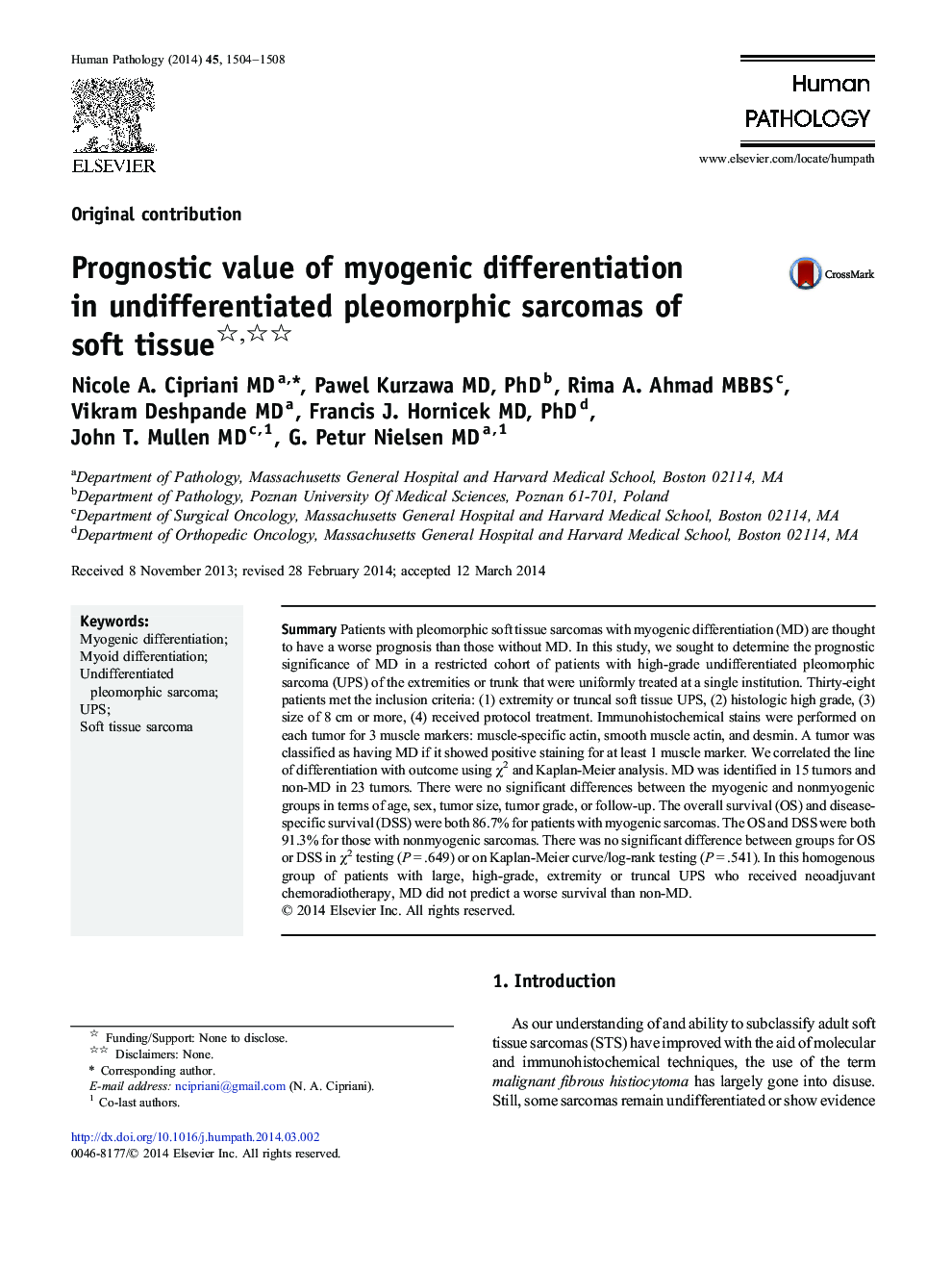| Article ID | Journal | Published Year | Pages | File Type |
|---|---|---|---|---|
| 4132814 | Human Pathology | 2014 | 5 Pages |
SummaryPatients with pleomorphic soft tissue sarcomas with myogenic differentiation (MD) are thought to have a worse prognosis than those without MD. In this study, we sought to determine the prognostic significance of MD in a restricted cohort of patients with high-grade undifferentiated pleomorphic sarcoma (UPS) of the extremities or trunk that were uniformly treated at a single institution. Thirty-eight patients met the inclusion criteria: (1) extremity or truncal soft tissue UPS, (2) histologic high grade, (3) size of 8 cm or more, (4) received protocol treatment. Immunohistochemical stains were performed on each tumor for 3 muscle markers: muscle-specific actin, smooth muscle actin, and desmin. A tumor was classified as having MD if it showed positive staining for at least 1 muscle marker. We correlated the line of differentiation with outcome using χ2 and Kaplan-Meier analysis. MD was identified in 15 tumors and non-MD in 23 tumors. There were no significant differences between the myogenic and nonmyogenic groups in terms of age, sex, tumor size, tumor grade, or follow-up. The overall survival (OS) and disease-specific survival (DSS) were both 86.7% for patients with myogenic sarcomas. The OS and DSS were both 91.3% for those with nonmyogenic sarcomas. There was no significant difference between groups for OS or DSS in χ2 testing (P = .649) or on Kaplan-Meier curve/log-rank testing (P = .541). In this homogenous group of patients with large, high-grade, extremity or truncal UPS who received neoadjuvant chemoradiotherapy, MD did not predict a worse survival than non-MD.
